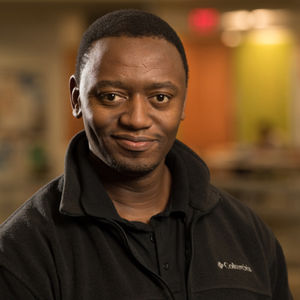
Tartan Talks
Christopher LaFuria
Culture, history and progress of computer animation
OCT 11, 202137 MIN

Culture, history and progress of computer animation
OCT 11, 202137 MIN
Description
<p>If you’re an artist, sometimes looking back on your earliest work can be – well – somewhat embarrassing. But as Edinboro University professor Karabo Legwaila explains in today’s episode of “Tartan Talks,” that’s one of the best ways to improve as an artist.</p>
<p>Karabo Legwaila joined the Art Department in the fall of 2016 as a professor of Computer Animation. Prior to that, he spent 10 years as a lead technical animator and dynamics specialist. Originally from Botswana, Karabo received his Master of Fine Arts degree in Computer Animation at the Rochester Institute of Technology.</p>
<p>He discusses what it’s like seeing your work in front of millions of people and how the field of animation has come a long way with inclusive culture.</p>
<p>Hear the entire episode at <a href="http://www.edinboro.edu/tartantalks">www.edinboro.edu/tartantalks</a> or wherever you listen to podcasts.</p>